I am no mnemonics guru or take part in memory championships. But I can list all United States presidents and how long they were in office for. It’s a fun party trick. It also has on few occasions managed to get my young cousins and other kids interested in history and learning, which I count as a massive win.
If we exclude the question of “Why?”, the answer to which is, history trivia such as US presidencies allows you to piece together events and periods that have shaped the world and get a better understanding of what was happening, most people are very interested to know “how?”
How do you go about integrating a piece of information to that extent that you can own it forever, never to forget it again?
. . .
My semi-obsession with memorizing trivia and retaining any information I deem worthy, started about three years ago when as any self-respecting student will tell you, I was struggling and failing to memorize large chuncks of textbook information.
During that time, I was flirting with the idea of starting a new language and had picked a book that was supposed to help you do that, very fast and very easily.
That book was Fluent Forever, by Gabriel Wyner. An opera singer and polyglot, Gabriel, launched one of the most successful Kick-starter campaigns that is now an app that can help you learn a language forever.
In his book, he talked about how he went from one to six languages through a method known as spaced repetition. Even though I haven’t gotten to learning a new language through this method yet, the idea of using spaced recognition to retain information stuck with me. Pun intended.
Before launching his own spaced repetition app that focuses on language learning, Wyner used an open-source flashcard program called Anki.
Let’s backtrack for a second!
. . .
The Scientific Basis For Memory Learning
Back in 1885, there was a German psychologist called Herman Ebbinghaus interested in studying how memory works. The path he chose can only be called masochistic as he consistently attempted to memorize nonsense words and numbers and then timed how fast he forgot them. His discovery is now known as “The Forgetting Curve”.
Nowadays, Ebbinghaus is considered a pioneer of memory studies and his results have been replicated in more studies. What he found was that most unrehearsed information or knowledge will decay within 24 hours and then continue to free fall. if you are not actively recalling the information, you retain a very very small percentage.
But…
If you do actively recall the information just before you forget it and continue to do that, the time frame between each recall can become longer and the information will embed itself in your brain and never leave you!
The idea is that you should only rehearse facts or knowledge that are “about to expire”. Practice too soon and the information is boring. Practice too late and the information is gone so you need to start again.
Now, most people are not Ebbinghaus and have no desire to track their learning curves or keep a time-sheet listing when they remembered what. Here is when a program like Anki enters the picture, with its fancy algorithm that can do all the work for you.
. . .
How does Anki help you remember everything forever?
Anki is so incredibly easy to use.
You make flashcards and then just “play the game” as I like to say.
Just download it on your phone or laptop and get ready to add your first flashcards.
When a flashcard is created it gets on a “learning schedule”.
When you first see a flashcard, you are asked to remember the correct answer then rate how well you recalled it.
Typically you can reply (Again, Hard, Good, Easy, Very Easy).
By clicking again, you will see the flashcard again in 10 minutes.
If you think it’s hard you might see it again in one day.
For the good option, you might see it again in two or three days and so on.
The dates constantly change, according to how many times you have seen this flashcard before and how often you have gotten it right in the past.
Here is an example!
If I remember this question well, I don’t have to see it for another 8 months!!
Even if I want to be on the safe side, I can still see it 4 months from now and be pretty certain that I won’t have forgotten it since I have seen this card a dozen or so more times in the last few months and gotten it right.
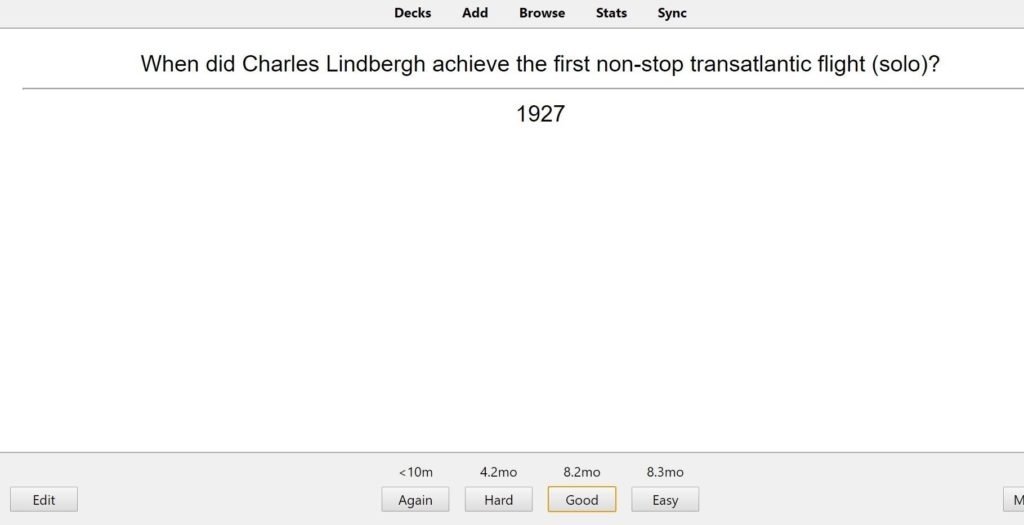
. . .
What can you learn with Anki?
Anything and everything you can dream of!
Geography, random trivia, friend’s birthdays or history. End of year exams that you need to be preparing for in advance are also perfect for spaced repetition.
Because the Anki community is pretty awesome, you don’t even have to make your first flashcards. Just head to the shared decks page on the website and download one of any number of decks relating to geography, languages, the sciences, law or music. That will give you an idea of how it works plus you can always add, edit or remove items to make it your own.
. . .
How to remember everything from your travels?
The same Anki method can be applied to your travel memories.
To remember everything that happened during your trip, all the people you met, the sights you saw and the information you gathered, you can simply create a few flashcards, and revisit them once in a while so they gradually build up a permanent base on your brain.
You can use pictures, graphs, quotes or anything else you want.
From interesting vocabulary to recipe ingredients, beach names, fun people or general information like “what was our favourite cheese when we visited Italy?”, you can create a memory treasure book that will allow you to remember everything!
. . .
Is there a way you use to remember everything you learn? Are you a fan of the Anki method?

Love it? Pin it!
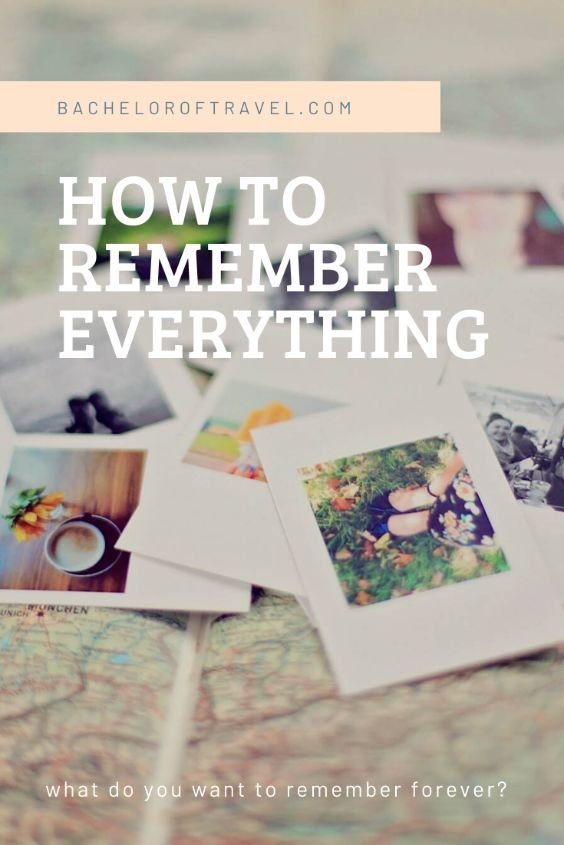
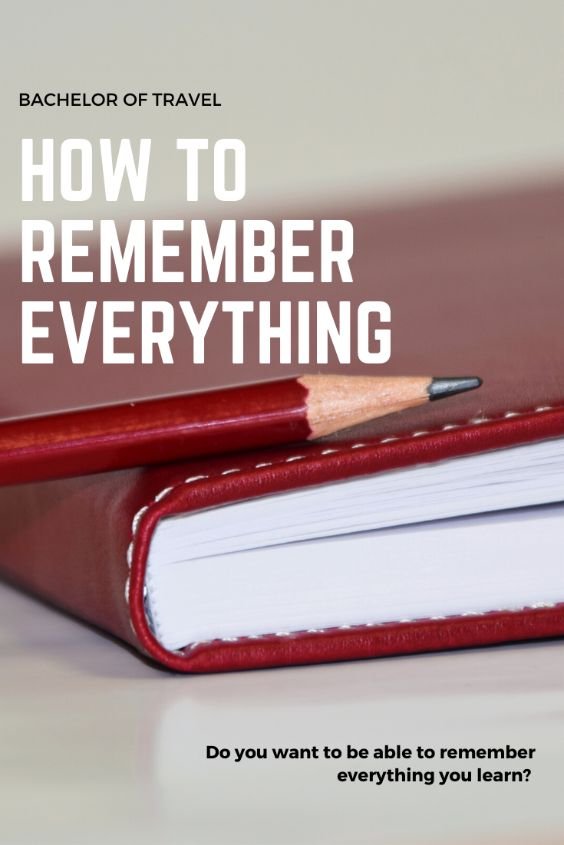
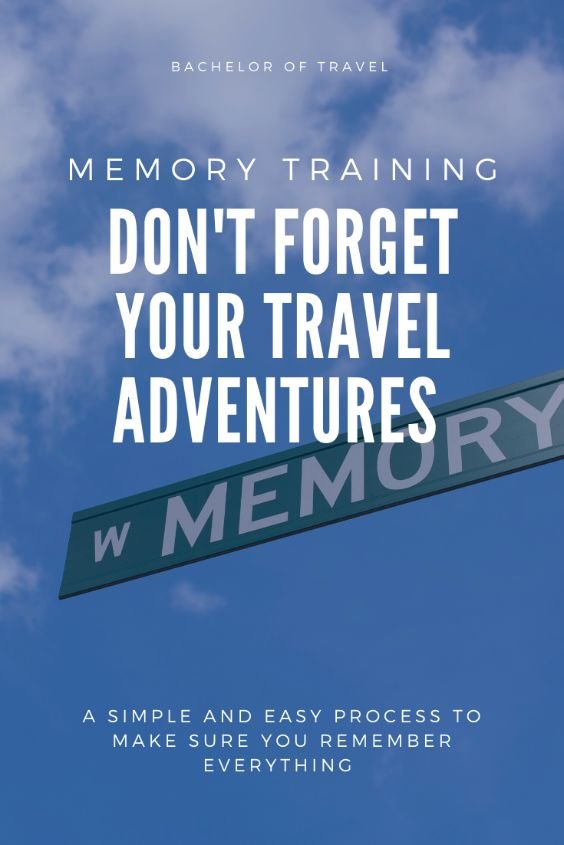




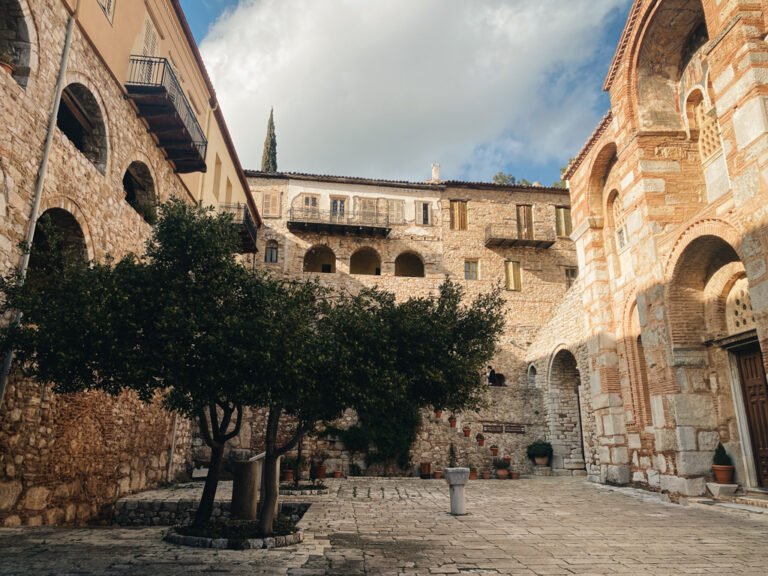
I don’t know for sure but usually I will remember things I learn when I re-write them using my own words.